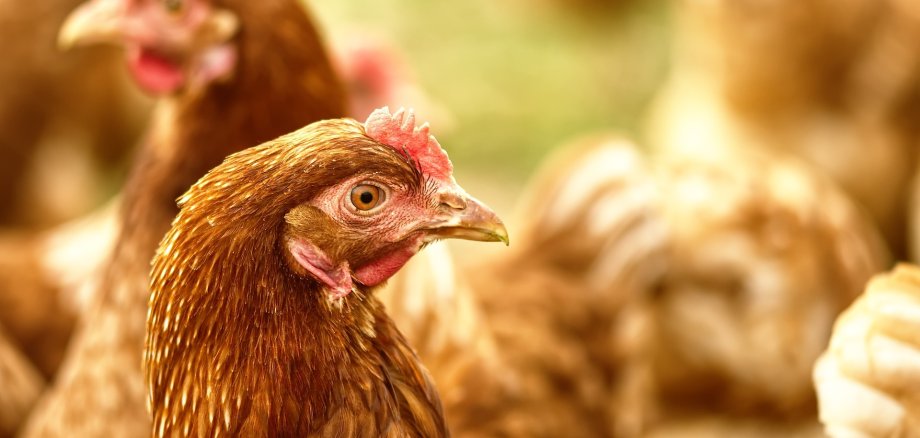Bird flu confirmed: County issues general ruling
Three dead cranes that were found at Lake Twistesee in the past few days have tested positive for the bird flu virus. The Federal Research Institute for Animal Health, the Friedrich Loeffler Institute, confirmed this to the district today. This means that bird flu has now also arrived in Waldeck-Frankenberg.
In order to protect the bird and poultry populations in the region, the district administration has issued a corresponding general decree for the district of Waldeck-Frankenberg, which applies with immediate effect - for an obligation to keep poultry in stables, for increased biosecurity measures and for a ban on poultry-related events. The information can be viewed in detail online here.
Keep poultry in closed stables
The order regulates the obligation to keep poultry in closed stables in Waldeck-Frankenberg. Poultry farmers are therefore obliged to keep their animals only in closed stables as a precautionary measure - away from grazing - in order to prevent the spread of the animal disease and an infestation of domestic poultry stocks as far as possible. Care must be taken to ensure that the animals are either kept completely indoors or only in aviaries with a closed roof and bird-proof netting or grids on the sides. Further information on this can be found on the website of the Hesse State Office for Agriculture.
Prevent contact with wild birds
It is important to ensure that domestic poultry cannot come into direct or indirect contact with wild animals or their faeces. Sick birds excrete the pathogen in their faeces and with mucus or fluids from their beaks and eyes. In the case of direct contact, other animals become infected by inhaling or picking up material containing the virus. Transmission can also occur through contaminated utensils such as vehicles, equipment or packaging material.
Increased biosecurity measures
The district also stipulates increased biosecurity measures for poultry farmers:
- Protective clothing: Access to stables is only permitted with the company's own or disposable protective clothing. Disinfectant mats and clean footwear are required.
- Cleaning and disinfection: Regular cleaning and disinfection of protective clothing, vehicles, machines and equipment is ordered.
- Securing contact objects and materials: Poultry farmers must ensure that feed, bedding and equipment are protected from wild birds and rodents.
Ban on events
The district's general ruling also stipulates that exchanges, markets and similar events at which poultry is traded or exhibited are prohibited with immediate effect and until further notice. This is intended to minimise the risk of spread through contact between animals of different origins and with people who may have come into contact with sources of infection.
Report dead animals
If a sick or dead wild bird, especially waterfowl such as swans, ducks, geese, herons or cranes, but also birds of prey, is found, the veterinary office of the district of Waldeck-Frankenberg should be informed by calling 05631 - 954 1753. In this context, the district once again draws attention to the fact that all poultry farms in Waldeck-Frankenberg, including smaller and non-commercial ones, must be registered with the district - regardless of how many animals they have. They must also be registered with the Hessian Animal Disease Fund. Further information can be found online at www.landkreis-waldeck-frankenberg.de/vogelgrippe.
Background
Avian influenza, also known as bird flu, is a severe form of avian influenza (AI) in poultry and other birds. However, the highly contagious virus is very easily transmitted among birds, meaning that it can spread quickly over large areas. Avian influenza cannot yet be treated. According to the Robert Koch Institute, no human cases of AI viruses have been reported in Germany to date. Nevertheless, as with all other dead animals, contact with sick or dead wild birds should be avoided and their discovery reported to the district authorities so that they can be recovered as quickly as possible and examined if necessary. Dead animals from your own flock should also be kept in such a way that other animals have no contact with the carcasses until they are collected by the rendering service. If several animals from your own herd fall ill or die, this must also be reported to the district.
